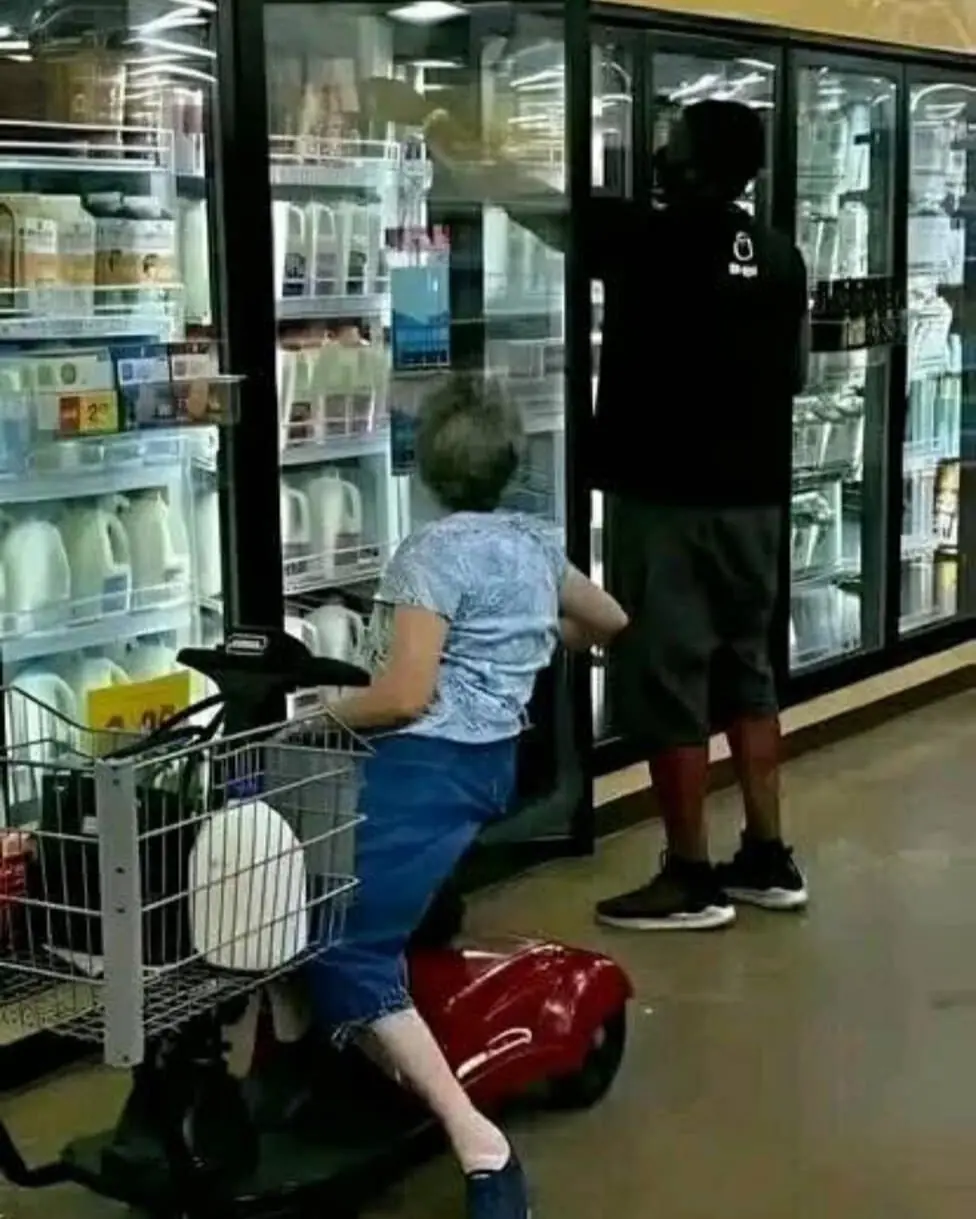
One Day My FIL Snapped, 'Did You Forget Whose House You're Living In?' — I Felt Humiliated and Had to Str!ke Back
When my father-in-law barked across the kitchen after tipping over my mop bucket — his voice sharp, his eyes hard — and demanded, “Did you forget whose house you’re living in?” I felt the sting run deeper than the soapy water soaking into my shoes. I had cooked, cleaned, and kept the peace under his roof for a year. I’d bent over backward to fit into a home that never truly welcomed me. And now, with my husband standing silent beside him, I knew something in me had shifted.


A couple on their wedding day | Source: Unsplash

A bedroom with old stuffed toys on the bed | Source: Pexels
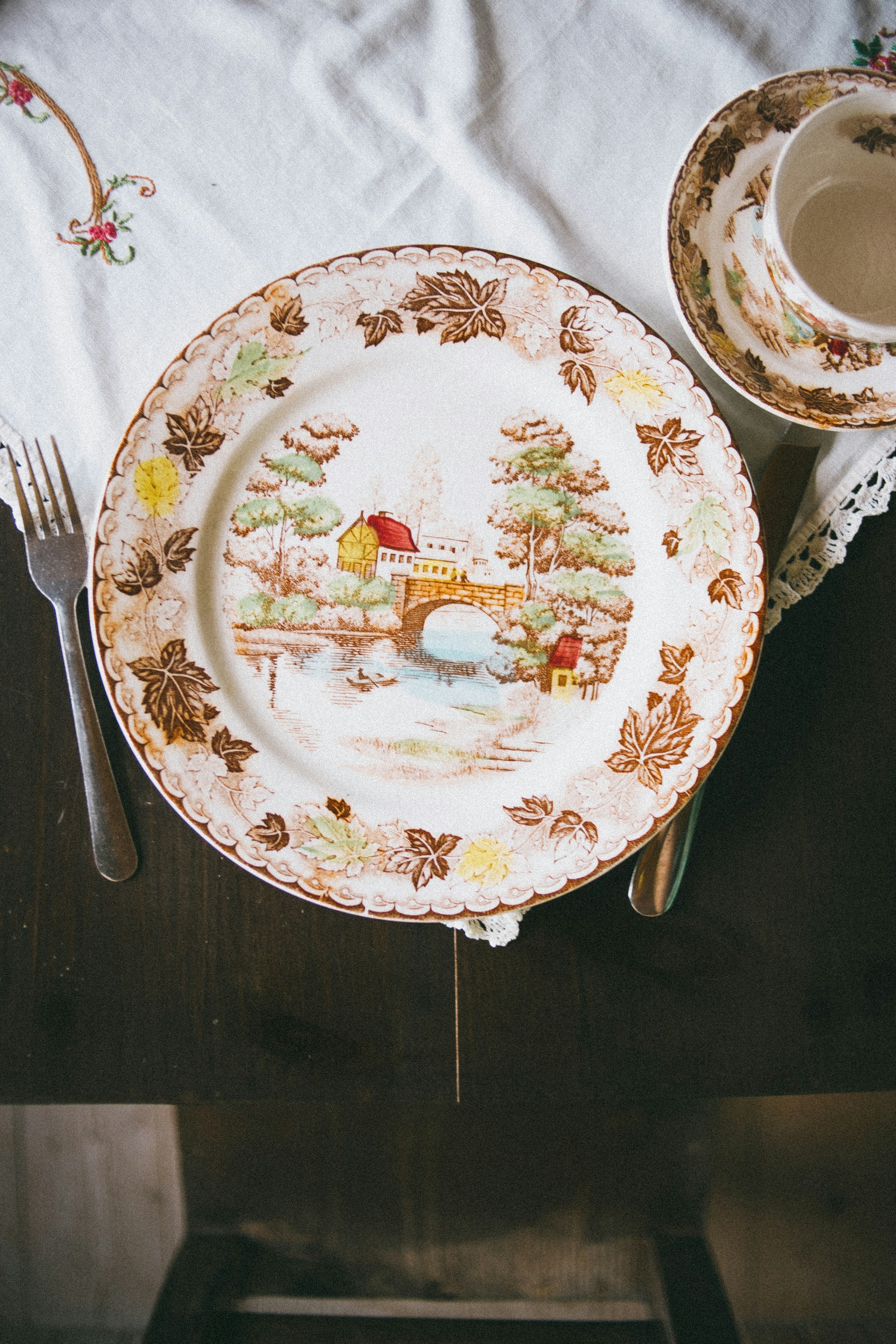
Patterned chinaware on a table | Source: Unsplash
Before we married, I had one clear request for Nathan: “Let’s get our own place.”
“We will,” he promised, “but moving in with my parents will help us save faster. No rent, no utilities — we could have a down payment by Christmas.”
I ignored the small knot in my stomach and agreed. Soon after, we moved into his old bedroom, the one that still smelled faintly of high school cologne and had posters curling at the edges.
The house itself was a time capsule — part museum, part showroom. Every surface was either covered in lace, protected by plastic, or both. The couch had a plastic runner that squeaked if you shifted your weight. The dining table sat beneath a lace tablecloth preserved under a sheet of clear vinyl, like it was waiting for a special guest who would never arrive.
His mother was polite but distant, her smiles more formal than warm. She’d quietly re-stack the salt and pepper shakers after I used them, as though I’d placed them in the wrong order. The “good” dishes only came out on Sundays — and only if she set the table.
His father, however, didn’t bother with politeness. He spoke to me mainly to correct me — whether it was how I folded towels, loaded the dishwasher, or even walked too loudly down the hall. It seemed that, in his eyes, I could do nothing right.
So I stayed small. I stayed out of the way. I cleaned bathrooms I didn’t use, cooked meals that went barely acknowledged, and folded laundry that smelled like a life that wasn’t mine. Every night, Nathan would wrap an arm around me and say, “We’ll be out soon.”
That word — soon — became my private torment.
“Soon” stretched into a year.
A year of my hands smelling like lemon cleaner, of my reflection in the bathroom mirror looking more tired and unfamiliar each day. His father never once used my name. I was simply “the girl” or “Nathan’s wife.”
I kept telling myself that hard work and patience would eventually earn me a place in this family. I told myself that if I didn’t push back, if I just quietly kept things running, they would one day see me differently.
Then came the mop bucket.
I was halfway through mopping — the second deep clean of the kitchen that week — when his father stomped in, muddy boots and all. One boot clipped the edge of the bucket, and in an instant, soapy water spread across the freshly cleaned floor, seeping into my socks.
“Could you please be more careful?” I asked, my voice low, trying to keep my frustration in check.
His head snapped toward me. “How dare you speak to me like that? Did you forget whose house you’re living in?” He jabbed a finger toward the floor. “I built this house with my own two hands. And you? You’ve never even swept it.”
I stood there gripping the mop handle, pulse pounding in my ears. Never swept it? I had swept those floors so many times I could probably do it in my sleep.
Nathan appeared in the doorway, eyes flicking from me to his father, but he stayed still — silent.
And in that silence, I understood. No one was going to defend me.
So I spoke for myself.
“Oh really?” I said, my voice steady. “Then who do you think has been sweeping them? You?”
His father’s expression faltered for a fraction of a second.
“I’ve cleaned this house every single day for a year,” I continued. “I’ve scrubbed your baseboards, polished your counters, and cooked your Sunday roasts without complaint. I thought that’s what family did for each other. But clearly, I’m not considered family here.”
The air between us turned heavy. He didn’t apologize — just stepped right through the spreading puddle, leaving muddy footprints behind.
That night, I gave Nathan a choice. “One week. Either we’re out of this house, or I’m staying with my mom until you decide who you’re married to — me or them.”
His face paled. “You don’t mean that.”
“I do. You said we’d be out by Christmas. It’s been a year, Nathan. I’ve done my part. I’ve kept this house running while your parents treated me like an intruder. I’m done.”
For the first time in months, I saw real urgency in his eyes. By the next morning, he remembered an uncle’s vacant cottage twenty minutes away. Funny how fast solutions appear when the alternative is losing something important.
We moved out that weekend. His mother watched from the doorway as we carried our things to the truck, her expression unreadable. His father never came outside.
Years later, Nathan and I bought a small two-bedroom in the city. It wasn’t perfect, but it was ours. We painted the walls in colors we loved, hung photos where we wanted, and sometimes left dishes in the sink — just because we could.
Last month, I found out I was pregnant. Nathan cried when I told him. We talked about baby names, strollers, and nursery colors. We talked about our future, not about his parents.
His father has never spoken to me since we left. His mother calls occasionally, usually when she needs something from Nathan. Once, she offered a lukewarm apology “on his behalf,” explaining that he was “set in his ways.” I accepted it for what it was — not a bridge rebuilt, but a door quietly closed.
I don’t need an apology from someone who never respected me. What I need — and now have — is a home that’s mine, a husband who learned to stand beside me, and soon, a child who will never see their mother diminished in someone else’s house.
News in the same category


A Boy Named Shayden Just Wanted One Thing: A Friend — Can We Help?
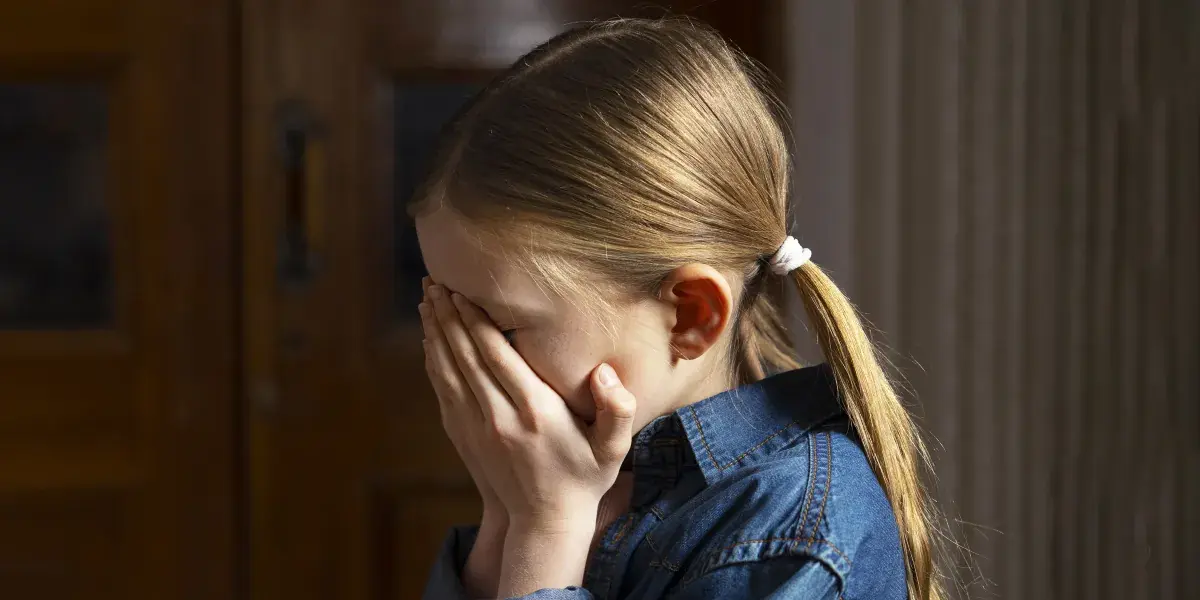
My MIL Kicked My 6-Year-Old Daughter Out of My Nephew’s 7th Birthday Party – When I Found Out Why, I Had to Teach Her a Lesson
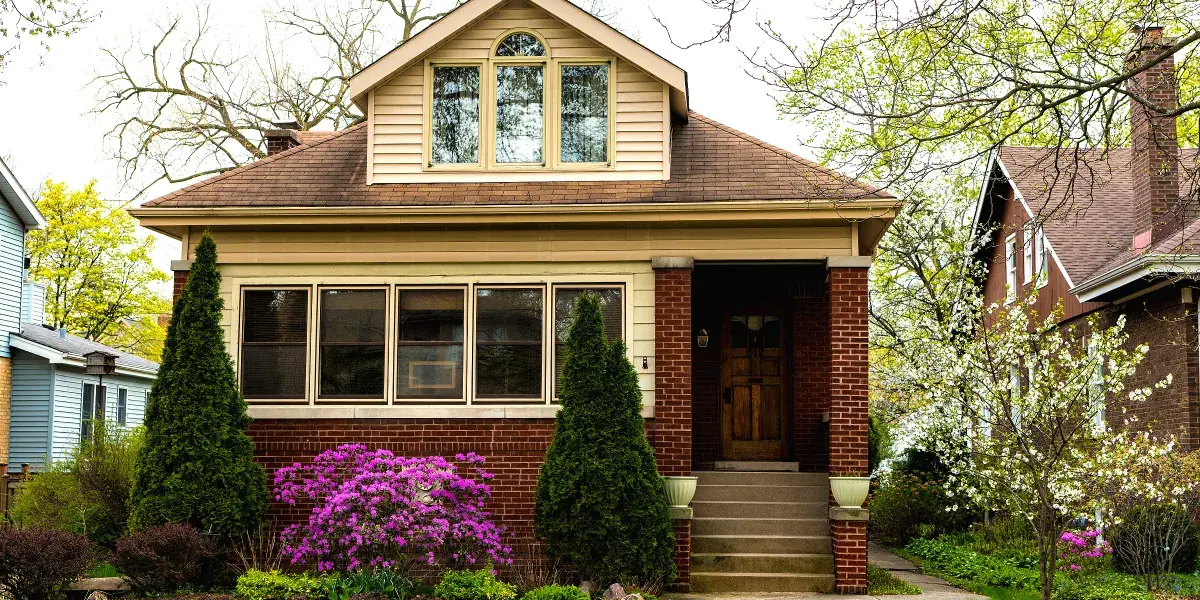
My Parents Kicked Me Out for Refusing to Attend Their Dream College — Five Years Later, They Got a Lesson They’ll Never Forget

I Thought My Daughter Was Just Going Through a Phase, but Her Journal Exposed a Truth I Wasn't Ready for – Story of the Day

The Dog Who Never Ran Away Again.

Officer’s Quick Fix Turns Routine Call into a Viral Moment of Kindness.

My son brought a psychiatrist home to have me declared legally incompetent.

“Mom, why are you interfering in my family? You broke up your son with his wife, you broke up my brother, and now you’ve come for me?!” the daughter protested to her mother, jabbing trembling fingers at her phone.

The Gentle Wisdom of Squirrels.

Officer’s Quick Fix Turns Routine Call into a Viral Moment of Kindness.
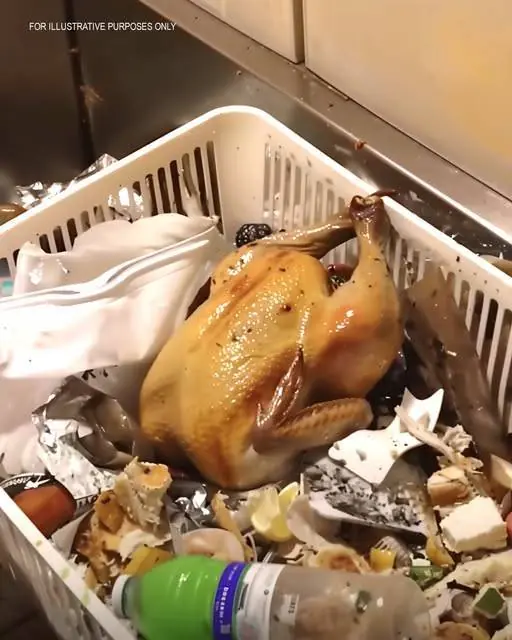
My Husband Threw Away the Chicken I Cooked Saying ‘You’ll Thank Me Later’ – When I Found Out Why, I Filed for Divorce
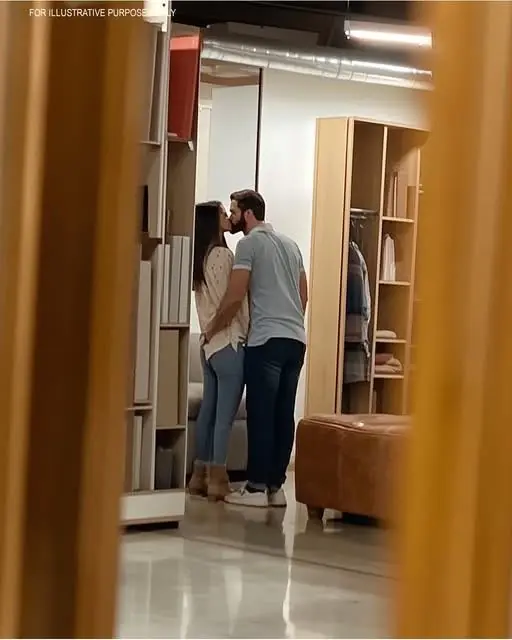
I Accidentally Caught My Husband with His Lover in a Furniture Store Choosing Items for Their ‘Cozy Love Nest’

Whispers under the bed: 5 year old’s cry for help

Viewers 'terrified' after video of woman on a farm leaves them questioning everything

Little-known reason why you should always avoid seat 11A when booking a flight
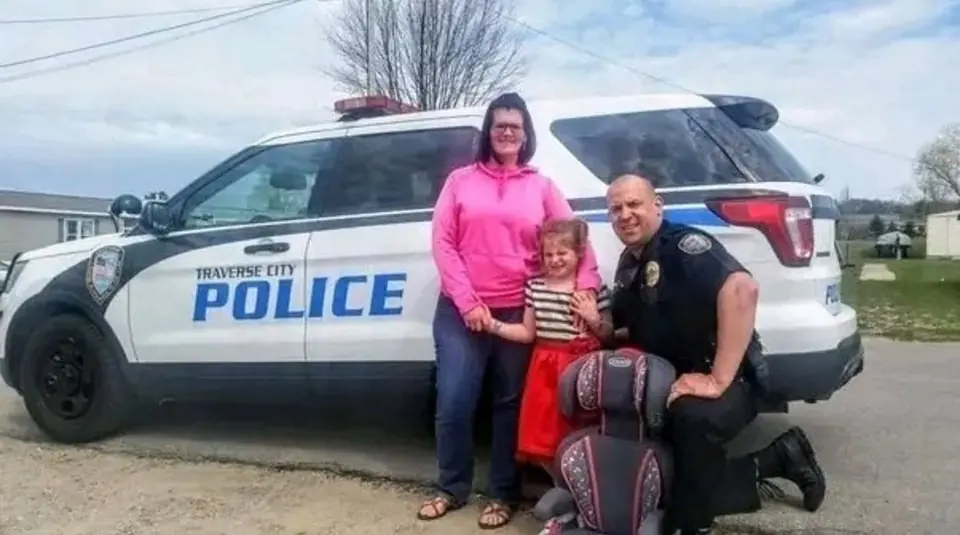
A Small Stop, A Big Heart: How One Officer Made a Child Safer

“We’re Not Leaving Each Other” — The Story of Daniel and Bruno.

My Husband Begged Me to Hire a Nurse After His Injury – One Day She Came to Me and Said, 'I Can't Stay Quiet Anymore… It's About Craig'
News Post

Proven Inflammatory Foods to Avoid According to Science

A Quiet Act of Kindness That Restored My Faith in Humanity.

Proven Health Benefits of Matcha Green Tea: Weight Loss, Cancer and More (Evidence Based)

A Boy Named Shayden Just Wanted One Thing: A Friend — Can We Help?
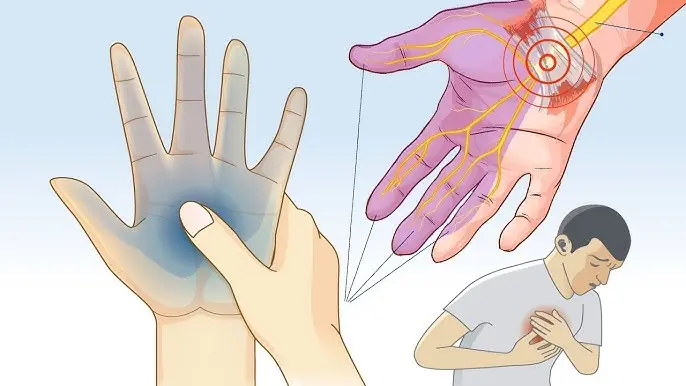
Waking Up with Numb or Tingling Hands: What It Really Means (Science Based)

My MIL Kicked My 6-Year-Old Daughter Out of My Nephew’s 7th Birthday Party – When I Found Out Why, I Had to Teach Her a Lesson

Amazon's forgotten $500,000,000 deal that 'killed' Toys 'R' Us in 'cruel' move

The real reason why nobody has ever found human remains inside the Titanic wreckage

My Parents Kicked Me Out for Refusing to Attend Their Dream College — Five Years Later, They Got a Lesson They’ll Never Forget

I Thought My Daughter Was Just Going Through a Phase, but Her Journal Exposed a Truth I Wasn't Ready for – Story of the Day

Scientists Reverse Aging of a 53-Year-Old’s Skin Cells to That of a 23

Thyroid Gland: How to Balance Its Hormones

Gluten Intolerance Warning: Eczema and Other Hidden Signs Revealed

Your Body Is Begging You to Notice These High Blood Sugar Warnings

Research Reveals 12 Powerful Foods to Boost Your Brain, Improve Memory, and Make You Smarter

The Dog Who Never Ran Away Again.

Officer’s Quick Fix Turns Routine Call into a Viral Moment of Kindness.

My son brought a psychiatrist home to have me declared legally incompetent.
